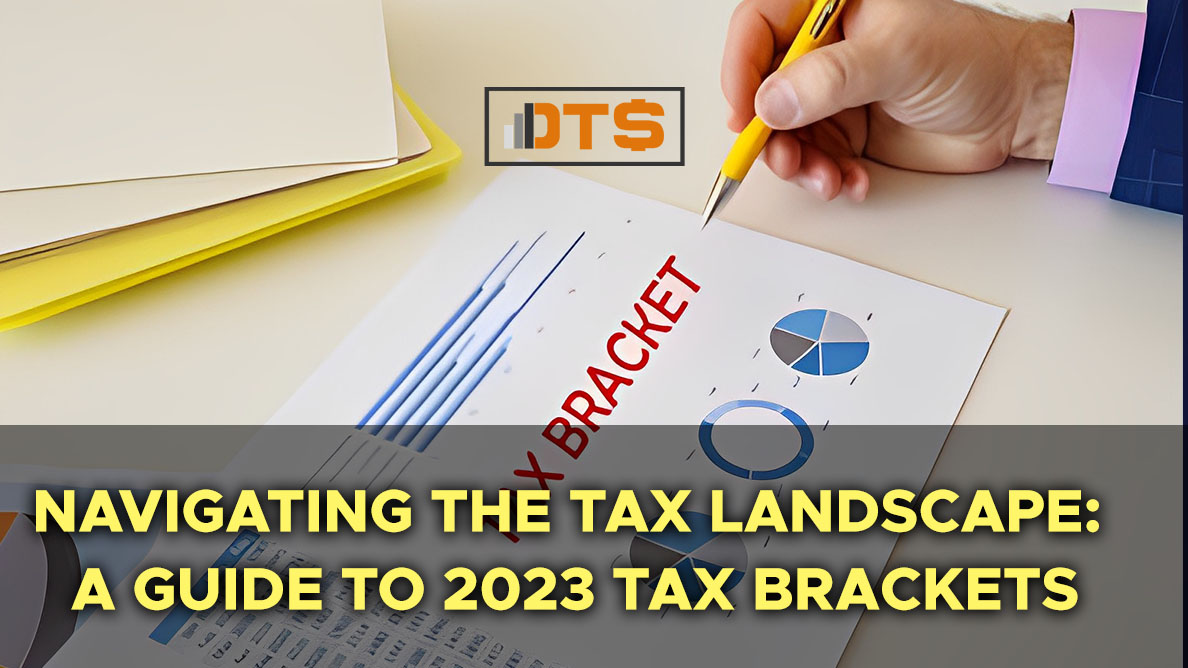
Navigating the Tax Landscape: A Guide to 2023 Tax Brackets
As another tax year unfolds, it’s essential for taxpayers to understand the intricacies of the U.S. tax system. The Internal Revenue Service (IRS) establishes tax brackets, which determine the percentage of income that individuals and businesses owe in taxes. Let’s delve into the tax brackets for the tax year 2023 and explore how they may impact your financial landscape.
Understanding Tax Brackets
Tax brackets are the foundation of the progressive tax system in the United States. This system means that as your income increases, the percentage of that income paid in taxes also rises. The U.S. tax system consists of several income ranges, each with its own corresponding tax rate. It’s crucial to note that not all of your income is taxed at the same rate; instead, different portions of your income fall into different tax brackets.
2023 Tax Brackets
For the tax year 2023, the IRS has made adjustments to the income thresholds for each tax bracket to account for inflation. Here is an overview of the tax brackets:
Single Filer
| If taxable income is: | The tax due is: |
| Not over $11,000 | 10% of taxable income |
| Over $11,000 but not over $44,725 | $1,100 plus 12% of the excess over $11,000 |
| Over $44,725 but not over $95,375 | $5,147 plus 22% of the excess over $44,725 |
| Over $95,375 but not over $182,100 | $16,290 plus 24% of the excess over $95,375 |
| Over $182,100 but not over $231,250 | $37,104 plus 32% of the excess over $182,100 |
| Over $231,250 but not over $578,125 | $52,832 plus 35% of the excess over $231,250 |
| Over $578,125 | $174,238.25 plus 37% of the excess over $578,125 |
Married Filing Separately
| If taxable income is: | The tax due is: |
| Not over $11,000 | 10% of taxable income |
| Over $11,000 but not over $44,725 | $1,100 plus 12% of the excess over $11,000 |
| Over $44,725 but not over $95,375 | $5,147 plus 22% of the excess over $44,725 |
| Over $95,375 but not over $182,100 | $16,290 plus 24% of the excess over $95,375 |
| Over $182,100 but not over $231,250 | $37,104 plus 32% of the excess over $182,100 |
| Over $231,250 but not over $346,875 | $52,832 plus 35% of the excess over $231,250 |
| Over $346,875 | $93,300.75 plus 37% of the excess over $346,875 |
Head of Household
| If taxable income is: | The tax due is: |
| Not over $15,700 | 10% of taxable income |
| Over $15,700 but not over $59,850 | $1,570 plus 12% of the excess over $15,700 |
| Over $59,850 but not over $95,350 | $6,868 plus 22% of the excess over $59,850 |
| Over $95,350 but not over $182,100 | $14,678 plus 24% of the excess over $95,350 |
| Over $182,100 but not over $231,250 | $35,498 plus 32% of the excess over $182,100 |
| Over $231,250 but not over $578,100 | $51,226 plus 35% of the excess over $231,250 |
| Over $578,100 | $172,623.50 plus 37% of the excess over $578,100 |
Married Filing Jointly or Qualifying Surviving Spouse
| If taxable income is: | The tax due is: |
| Not over $22,000 | 10% of taxable income |
| Over $22,000 but not over $89,450 | $2,200 plus 12% of the excess over $22,000 |
| Over $89,450 but not over $190,750 | $10,294 plus 22% of the excess over $89,450 |
| Over $190,750 but not over $364,200 | $32,580 plus 24% of the excess over $190,750 |
| Over $364,200 but not over $462,500 | $74,208 plus 32% of the excess over $364,200 |
| Over $462,500 but not over $693,750 | $105,664 plus 35% of the excess over $462,500 |
| Over $693,750 | $186,601.50 plus 37% of the excess over $693,750 |
Navigating the tax landscape requires a comprehensive understanding of the current tax brackets. As the tax year 2023 unfolds, individuals and businesses should leverage this knowledge to make informed financial decisions. By strategically managing income, deductions, and credits, taxpayers can optimize their tax position and contribute to their overall financial well-being.
